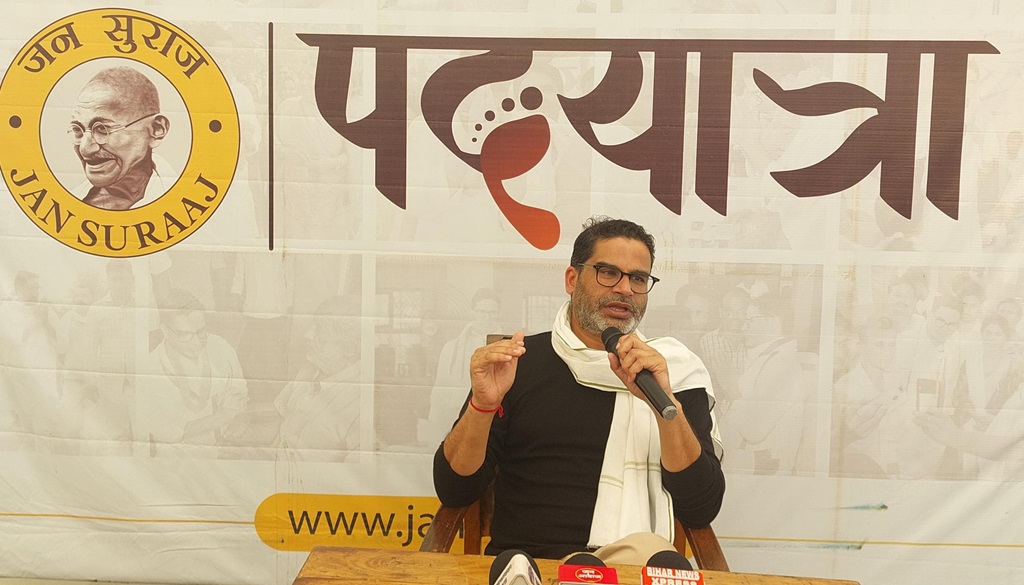Prashant Kishore Analyzes BJP’s Electoral Dominance and Urges Opposition Strategy Shift

Darbhanga: Prashant Kishore, former poll strategist and Jan Suraj campaign convenor, has emphasized that to effectively challenge the Bharatiya Janata Party (BJP), opposition parties must grasp the strengths that contribute to the BJP’s electoral success. He underscored the importance of understanding the reasons behind people’s support for the BJP before devising strategies to compete.
Kishor’s statement came in response of queries from journalists on BJP’s victories in the recent assembly elections in Madhya Pradesh, Chhattisgarh and Rajasthan, diverse perspectives are emerging.
During a press conference in the Singhwada block of Darbhanga on Monday, Kishore outlined four key factors driving votes towards the BJP. Firstly, he acknowledged the influence of the BJP’s Hindutva ideology, stating that a significant section of the electorate aligns with this belief and casts votes in favor of the party. Secondly, Kishore pointed to the emergence of a discourse on new nationalism, where the narrative of India’s global leadership under Modi resonates in villages, particularly heightened during incidents like Pulwama.
Thirdly, Kishore attributed the BJP’s success to a considerable segment benefiting from central schemes, such as the Kisan Swanidhi Yojana and Housing Scheme, where funds are directly disbursed to recipients. Lastly, he highlighted the organizational and economic strength of the BJP, asserting that the party’s well-established structure makes a substantial impact.
In terms of organizational strength, Kishore drew a crucial distinction between the BJP and other parties, noting that BJP provides financial support to candidates and encourages effective public relations, fostering a more robust electoral effort.
To counter the BJP’s dominance, Kishore advised other parties to strengthen their organizations and focus on improving at least three of the four identified factors—Hindutva appeal, nationalist sentiments, benefits for constituents, and organizational prowess. Without a comprehensive strategy addressing these elements, he warned that opposition parties are likely to face defeat in a significant majority of elections.
Responding to recent victories by the Congress in Karnataka and Telangana, Kishore cautioned against interpreting these wins as a surge in Congress support. He asserted that these victories were more indicative of a vote against incumbent governments, particularly targeting KCR in Telangana. Kishore suggested that Congress, being the only alternative, garnered votes by default, characterizing it as a vote of incumbency rather than explicit support for the party.





